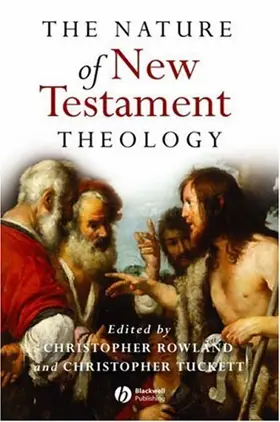

The Nature of New Testament Theology: Essays in Honour of Robert Morgan
Pages
336
Publisher
Wiley-Blackwell
Published
3/21/2006
ISBN-13
9781405111744
This volume brings together some of the most distinguished writers in the field of New Testament studies to provide an overview of discussions about the nature of New Testament theology.
- Examines the development, purpose and scope of New Testament theology.
- Looks at the relationship of New Testament theology with other branches of theology.
- Considers crucial issues within the New Testament, such as the historical Jesus, the theology of the cross, eschatology, ethics, and the role of women.
- Offers fresh perspectives which take discussion of the subject further in key areas
- Includes a foreword by Rowan Williams.
Reviews
This particularly rich collection of essays forms a very appropriate Festschrift for Robert Morgan on the occasion of his early retirement from Oxford University. Questions addressed range from the definition, purposes, and scope of New Testament theology to the contributions of individual authors or corpora to issues of the role of the historical Jesus, Christian faith, and relevance for the life of the church in the enterprise. After an introduction by the Archbishop of Canterbury, Rowan Williams, John Ashton authors the first of the seventeen chapters. In it he follows closely in the footsteps of Gabler’s pioneering work in biblical theology in the late 1700s and William Wrede’s at the turn of the twentieth century to argue for a sharp delineation between the work of the historian, who determines what the text meant, and the theologian who determines what it means for the church today. John Barton then complements Ashton by arguing for the same distinction but stressing that, for the most part, at least Old Testament scholars have until quite recently usually engaged even in historical work out of a desire to serve the church. Barton recognizes this is not the only possible motive for exegesis but applauds it as perhaps the best and most important one.
[Full Review]
